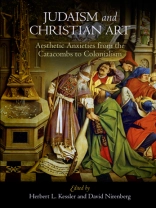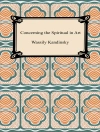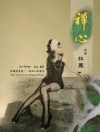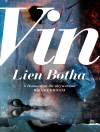Christian cultures across the centuries have invoked Judaism in order to debate, represent, and contain the dangers presented by the sensual nature of art. By engaging Judaism, both real and imagined, they explored and expanded the perils and possibilities for Christian representation of the material world.
The thirteen essays in Judaism and Christian Art reveal that Christian art has always defined itself through the figures of Judaism that it produces. From its beginnings, Christianity confronted a host of questions about visual representation. Should Christians make art, or does attention to the beautiful works of human hands constitute a misplaced emphasis on the things of this world or, worse, a form of idolatry (‘Thou shalt make no graven image’)? And if art is allowed, upon what styles, motifs, and symbols should it draw? Christian artists, theologians, and philosophers answered these questions and many others by thinking about and representing the relationship of Christianity to Judaism. This volume is the first dedicated to the long history, from the catacombs to colonialism but with special emphasis on the Middle Ages and the Renaissance, of the ways in which Christian art deployed cohorts of ‘Jews’—more figurative than real—in order to conquer, defend, and explore its own territory.
İçerik tablosu
List of Illustrations
Introduction
—David Nirenberg
Chapter 1. ‘Pharaoh’s Army Got Drownded’: Some Reflections on Jewish and Roman
—Genealogies in Early Christian Art
—Jaś Elsner
Chapter 2. Unfeigned Witness: Jews, Matter, and Vision in Twelfth-Century Christian Art
—Sara Lipton
Chapter 3. Shaded with Dust: Jewish Eyes on Christian Art
—Herbert L. Kessler
Chapter 4. Iudeus sacer: Life, Law, and Identity in the ‘State of Exception’ Called ‘Marian Miracle’
—Francisco Prado-Vilar
Chapter 5. Abraham Circumcises Himself: A Scene at the Endgame of Jewish Utility to Christian Art
—Marcia Kupfer
Chapter 6. Frau Venus, the Eucharist, and the Jews of Landshut
—Achim Timmermann
Chapter 7. Jewish Carnality, Christian Guilt, and Eucharistic Peril in the Rotterdam-Berlin Altarpiece of the Holy Sacrament
—Mitchell B. Merback
Chapter 8. The Ghetto and the Gaze in Early Modern Venice
—Dana E. Katz
Chapter 9. Through a Glass Darkly: Paths to Salvation in Spanish Painting at the Outset of the Inquisition
—Felipe Pereda
Chapter 10. Renaissance Naturalism and the Jewish Bible: Ferrara, Brescia, Bergamo, 1520-1540
—Stephen J. Campbell
Chapter 11. Poussin’s Useless Treasures
—Richard Neer
Chapter 12. Eugène Delacroix’s Jewish Wedding and the Medium of Painting
—Ralph Ubl
Chapter 13. The Judaism of Christian Art
—David Nirenberg
List of Contributors
Index
Acknowledgments
Yazar hakkında
Herbert L. Kessler is Professor of the History of Art at the Johns Hopkins University and author of Spiritual Seeing: Picturing God’s Invisibility in Medieval Art, also published by the University of Pennsylvania Press. David Nirenberg is Deborah R. and Edgar D. Jannotta Professor in the Committee on Social Thought and Department of History at the University of Chicago. He is author of Communities of Violence: Persecution of Minorities in the Middle Ages and Anti-Judaism: The Western Tradition.












